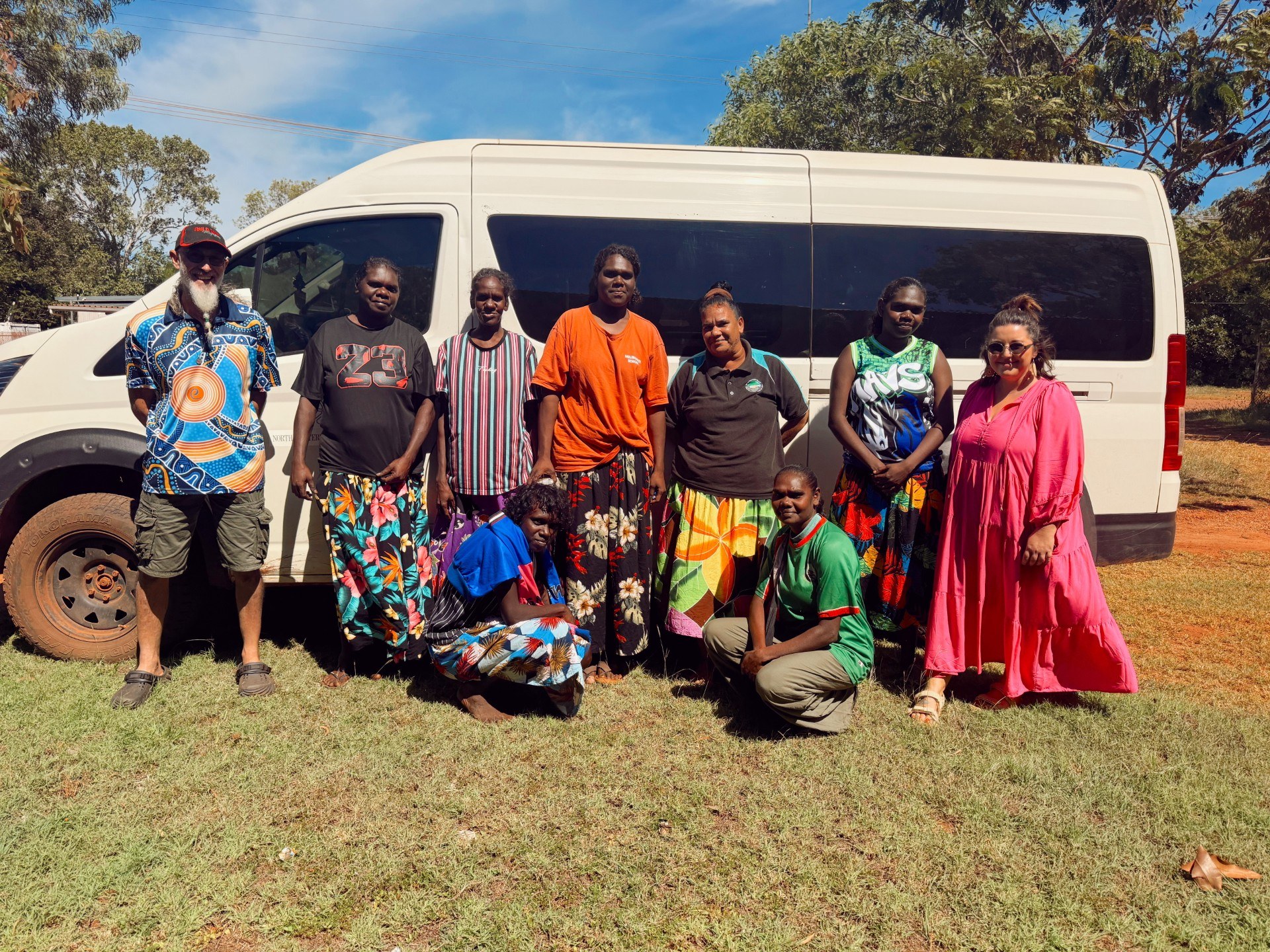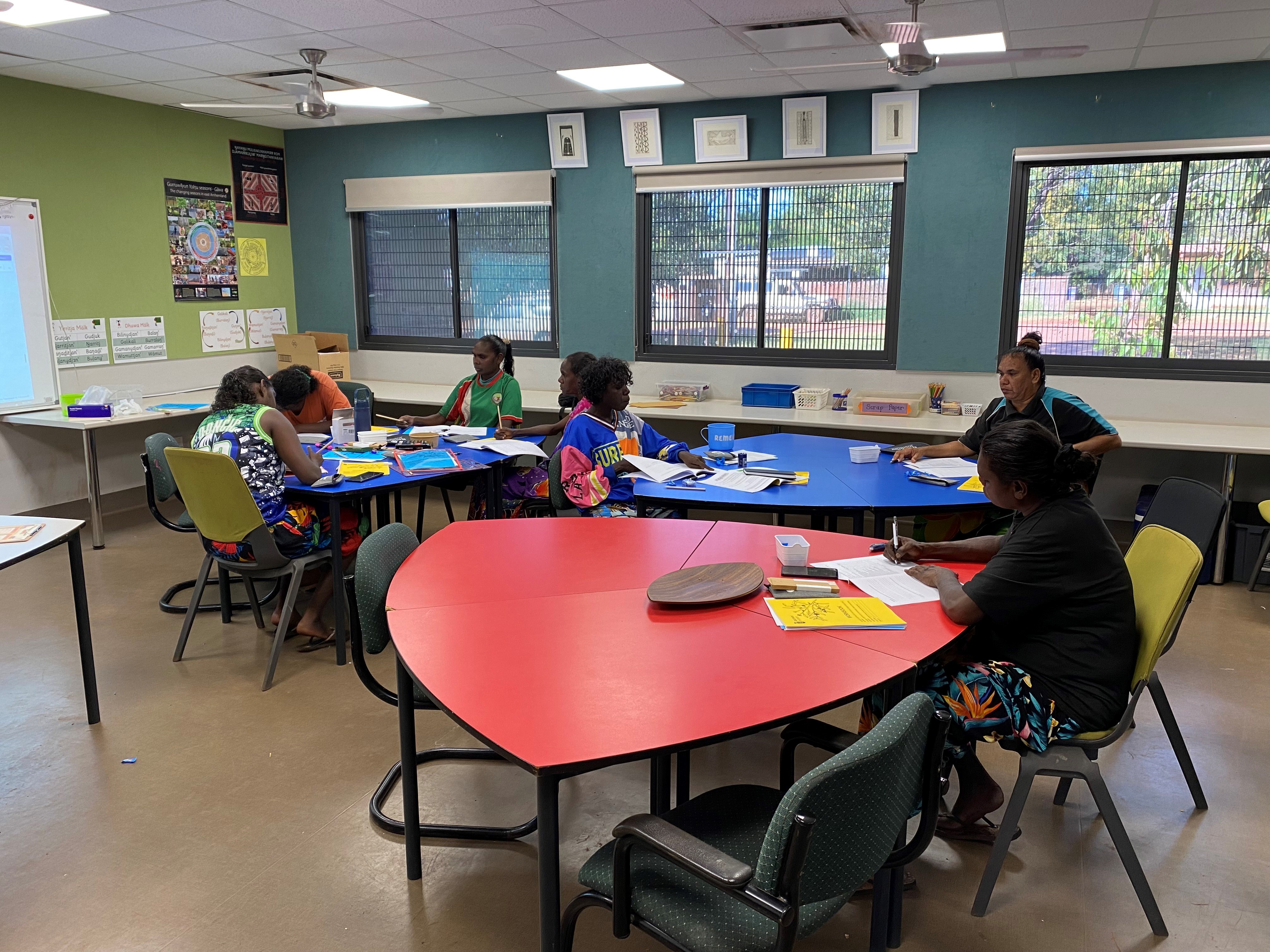
From the Batchelor campus on Kungarakan and Warai Country, Batchelor Institute of Indigenous Tertiary Education (RTO 0383) is advancing education through its CHC30221 Certificate III in School-Based Education Support. Lecturer Anthony Gomes shares how this program is equipping Indigenous Australian assistant teachers in remote Northern Territory communities, fostering cultural resilience and educational excellence.
A Commitment to Community-Based Learning
Anthony, a dedicated lecturer at Batchelor Institute, is passionate about delivering education directly in communities. “Travelling out and working with community is a good news story,” he says. “At Milingimbi, you’ve got Georgia Ackers employed by the school, working with strong Yolŋu staff, strong in culture, growing in their educational skills, which supports students and teachers.”
This year, Anthony has focused on remote workshops to enhance accessibility. In Millingimbi, 12 students are enrolled, with workshops held from 12–16 May and another planned for 21–24 July 2025. Other communities, including Maningrida (15 students), Yarralin (8 students), and Ramingining, are also benefiting. “When you meet students where they are, they’re more engaged,” Anthony notes. “They feel valued and committed because their efforts are recognised by both the school and Batchelor Institute.”

The Course: Building Classroom Expertise
The CHC30221 Certificate III in School-Based Education Support includes 15 units—10 core and 5 electives—designed to prepare assistant teachers for classroom success. Each week-long workshop covers approximately two units, addressing topics such as workplace health and safety, mandatory reporting, and school policies, and procedures. “The course equips students to support teachers and students more effectively,” Anthony explains.
Students must be employed in a school to enrol, and completion can lead to a pay grade increase and improved classroom contributions. For those looking to progress, some units from the Cert III can transfer to the CHC40221 Certificate IV in School-Based Education Support, with no prerequisite required. In Yarralin, Anthony recognised students with strong literacy and engagement, smoothly transitioning them to the Cert IV pathway.

Partnerships Driving Success
The program’s impact is strengthened by partnerships with schools and the Northern Territory Department of Education’s RATE (Remote Aboriginal Teacher Education) project. In Millingimbi, Galiwinku, Ramingining and Maningrida, Professional Learning Leaders (PLLs) are employed by schools to provide ongoing support, enabling students to complete additional units outside workshops. “When you have a PLL, RATE, and the school principal aligned, it’s the ideal scenario,” Anthony says. “locations such as Millingimbi, Maningrida, Yarralin, Wugularr, Manyallaluk, Bulman, Milikapiti, Pirlangimpi, Galiwinku, Ramingining, and Belyuen exemplify this.”
At Belyuen, students like Dylan are advancing quickly, with some potentially graduating by late 2026. In Millingimbi, students have completed three units and are on track to finish eight or nine by year’s end, nearly halfway through the course. Anthony attributes this to the “ideal situation” where community, school, and Batchelor Institute collaborate seamlessly.
Integrating Language and Culture
Batchelor Institute’s “Both Ways” philosophy is evident in the program’s integration of First Nations languages. In Belyuen, lecturer Kate is working with the school to develop language resources for classroom use. Millingimbi students are eager to include First Nations language units as electives, aligning with the course’s adaptability. “It’s a smart approach,” Anthony says. “They can progress towards a language qualification alongside their Cert III.”
In Maningrida, the diversity of languages poses challenges, but Anthony is optimistic about finding tailored solutions. “When there’s one main language, like in Milingimbi, it’s easier to align efforts,” he notes.
A Passion for Impact
Anthony’s enthusiasm is infectious. “It’s hard work, but seeing the smiles and the spark in students’ eyes makes it worthwhile,” he says. His deep ties, including 16 years in Maningrida, drive his dedication. With 111 students across 25 communities under his guidance, Anthony is creating lasting change.
The Certificate III in School-Based Education Support is more than a qualification—it’s a pathway to professional growth, cultural preservation, and community strength. Batchelor Institute remains committed to delivering education that uplifts, on Country and in partnership with Indigenous Australian communities.
